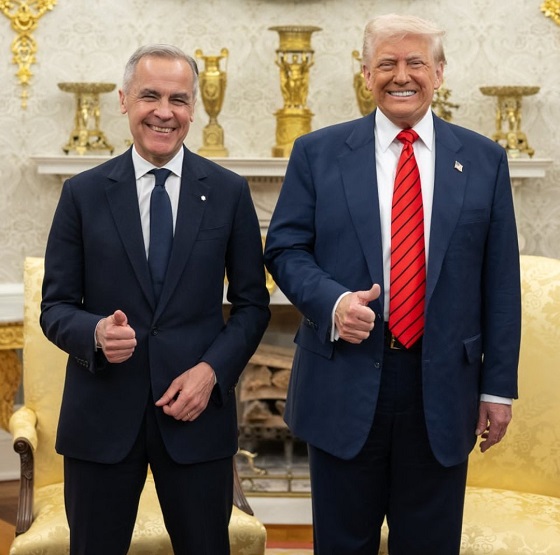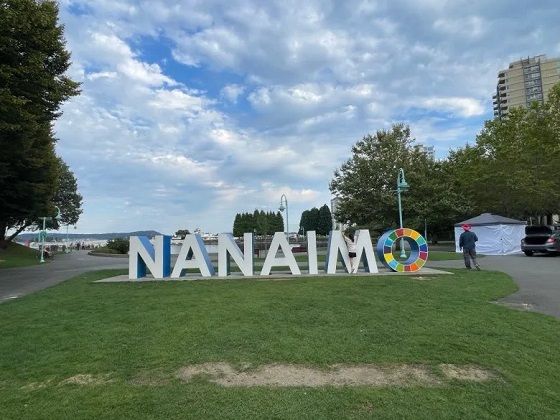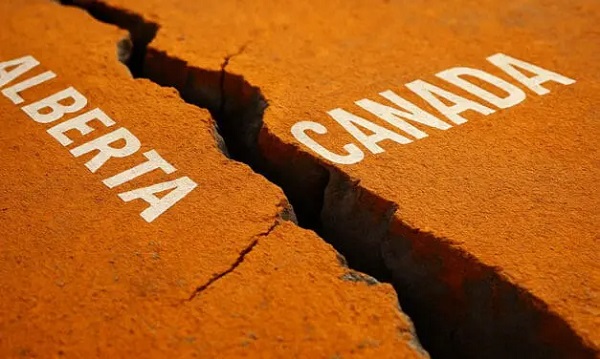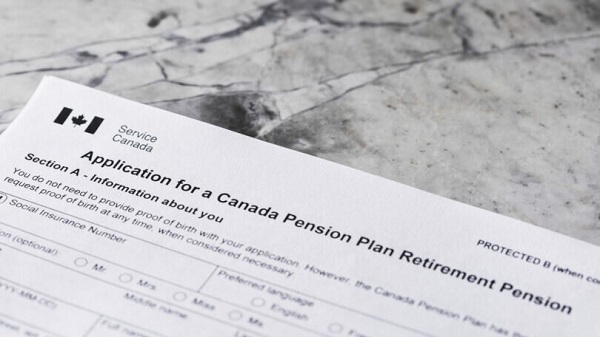Frontier Centre for Public Policy
Mark Carney’s Leadership Win Mirrors Past Liberal Failures

From the Frontier Centre for Public Policy
By Lee Harding
The Liberal Party has crowned Mark Carney leader, but his path to victory is riddled with obstacles
The Liberal Party of Canada has selected a non-MP to become prime minister, but precedent suggests he won’t last long. Mark Carney represents the worst aspects of both John Turner’s and Michael Ignatieff’s political rises and appears destined for the same electoral futility.
When Pierre Trudeau stepped down as Liberal leader in 1984 after more than 15 years as prime minister, he left behind a parting gift: over 200 Liberal patronage appointments. His successor, John Turner, agreed to another 70. These appointments became a burden, weighing down Turner’s leadership before it had even begun. Like Carney, Turner was not a sitting MP when he became leader. Forced to call a snap election, he watched the Progressive Conservatives secure the first of two successive majorities.
Now, history is repeating itself. Justin Trudeau’s cabinet made 70 appointments in its final days, including 12 judges. That number doesn’t include the 10 senators he appointed while Parliament was prorogued—nearly 10 per cent of the 105-seat chamber. Like Turner, Carney must navigate a leadership legacy tainted by patronage and an unpopular outgoing prime minister.
But does Carney’s experience, reputation, and distance from Trudeau offer him a fresh start? It seems unlikely. Unlike Turner, Carney has never held elected office.
Turner at least had a political track record. As a cabinet minister under two prime ministers, he handled high-profile Justice and Finance portfolios. He also benefited from a nine-year break from politics, distancing himself from the unpopular Trudeau. None of it mattered. Turner still lost.
Liberals hope Carney can ride a wave of popularity after a dominant leadership victory, securing 85 per cent support. But what did he really win? A former central banker, he climbed atop a heap of ruins.
His victory over Chrystia Freeland, Karina Gould, and former MP Frank Baylis was less a competitive race and more a coronation. Freeland carried the baggage of Trudeau’s policies, while the other two lacked national recognition. Carney, the only contender without direct ties to Trudeau’s government, was the default choice. The Liberal Party is adrift, and he simply took the helm.
But winning an uncontested leadership race is no guarantee of electoral success. Turner’s rise in 1984 was far more hard-fought—he overcame political heavyweights, including Jean Chrétien and four other cabinet ministers, in a real contest for the party’s future. Yet despite his credentials and broad support within the party, Canadians still rejected him.
And unlike Turner, Carney’s leadership victory raises serious legitimacy concerns. Liberal leadership races allow votes from permanent residents (non-citizens) and minors aged 14 to 17—groups that have no say in a general election. Even more troubling, of the 400,000 votes cast, only 147,000 were verified. Carney received 126,000 of those votes, but nearly two-thirds of ballots were rejected. Had those votes gone to any of his opponents, Carney’s win would have been far from certain.
A Rebel News petition calling for Elections Canada, CSIS, and the RCMP to audit the leadership vote is already circulating. While skepticism over the process is reasonable, it’s doubtful that meaningful answers will emerge.
Beyond legitimacy issues, Carney shares another unfortunate trait with a failed Liberal leader: Michael Ignatieff.
Ignatieff followed Stéphane Dion, whose push for a carbon tax proved deeply unpopular. The Conservatives quickly branded Ignatieff, a long-time Harvard professor, as an elitist disconnected from ordinary Canadians. Their “He didn’t come back for you” attack ads stuck, and Ignatieff led the Liberals to a historic defeat, falling to third-party status.
Carney faces the same vulnerability. After years in England, he will struggle to shake the image of an out-of-touch globalist. His French, weaker than Ignatieff’s, will also hurt him in Quebec, a province that abandoned the Liberals in 2011 in favour of the NDP.
History suggests Carney’s leadership will pave the way for another Conservative majority government—just as Turner and Ignatieff’s failures did.
Carney’s leadership campaign combines the worst aspects of 1984 and 2011. As an unelected, elitist ex-pat with weak French, he carries a Liberal banner weighed down by both Trudeau’s baggage and the deeply unpopular carbon tax.
A Conservative government with a mandate for reform is increasingly likely. A slimmed-down civil service, reduced regulations, the abolition of the carbon tax, and renewed pipeline construction could all be on the horizon. After nearly a decade of Liberal rule, Canada’s political pendulum seems set to swing back once again.
Lee Harding is Research Fellow for the Frontier Centre for Public Policy.
Alberta
Jann Arden’s Rant Will Only Fuel Alberta’s Separation Fire

From the Frontier Centre for Public Policy
By Lee Harding
In a fiery takedown of Alberta sovereigntists, Jann Arden may have poured gas on the sovereignty fire instead of dousing it. Lee Harding argues that her vulgar swipe ignored Alberta’s raw deal in Confederation, from lopsided equalization to federal overreach, and only deepens Western alienation. Rather than shaming Albertans into silence, her outburst might push them closer to the exit.
The singer’s foul-mouthed tirade won’t shame Alberta into silence. It’ll only push the province further toward the door
Jann Arden’s recent tirade against sovereigntist Albertans will probably do more to motivate them than set them back.
In an online rant, the Calgary-born-and-raised singer lowered public discourse a few notches.
“Hey, Alberta. Hey, you bunch of fu-king separatist wackos. How you doing? Feeling good about yourselves? You’re an embarrassment to this country. Everything you have, everything that you have enjoyed, cherished and benefited from, comes from being part of one of the greatest countries on the planet.”
Ha! Arden only embarrassed herself with her rudeness and ignorance.
Canada has been milking Alberta for a long time. In a 2024 study, the Fraser Institute showed that from 2007 to 2022, Albertans contributed $244.6 billion more in taxes and other payments to the federal government than they received in federal spending, more than five times as much as British Columbians or Ontarians. The other seven provinces were net takers.
Alberta is carrying Canada’s load by doing many things right, only to get zero respect and little benefit in return. For the past 10 years, Ottawa has done everything it can to undermine the energy sector through regulation and taxation, and encroach on provincial jurisdiction through legislation. Rather than feeding and protecting the goose that lays the golden eggs, it would rather pluck out its feathers.
The imbalance is nothing new. Since Confederation, most Canadian provinces have enjoyed jurisdiction over their natural resources. However, Alberta and Saskatchewan didn’t get that until 1930. When equalization began in 1957, Alberta received payments for eight years and never again. Quebec has been paid every year.
Ottawa went the route of more taxation, programs and debt, while Alberta took a more conservative approach. Its capacity to spend rose and fell with the price of oil. Just when Alberta hit another good wave, Ottawa launched the National Energy Program in the early 1980s—just to remind them who ruled the country and to whose benefit. Alberta got reduced profits and Eastern Canadians got cheap gas.
Alberta has been stuck in an abusive relationship for a long time and is wondering if it wouldn’t be better to be on her own. In the background is another suitor named Donald Trump, who would relieve Alberta of those pesky equalization payments and onerous regulations. The province would become the “cherished 51st state” instead of some western challenger to Central Canadian dominance that always needs to be put in its place.
Arden can’t see any of this. And her vitriol does nothing to make Albertans want to stay.
“You guys have your head so far up your as-es that you obviously can’t see what pri-ks you are,” Arden ranted. “The way you are treating your fellow citizens, your fellow Canadians, you guys are a bunch of creepy little pri-ks…
“Alberta will never separate from Canada. It’s never going to happen because people like me are going to stand up, throw their shoulders back, and keep fu-king yelling and keep standing up for what I know is right.”
Oh? Should Albertans stay because an insulting singer inspires a screaming mob? Will they suddenly find gratitude?
No. Abused Albertans have had enough. Their wants are not only reasonable, they’re good and fair policy. Canadians and their federal government should treat Alberta with proper respect, care about its grievances and feelings, and appreciate how they’d be a whole lot worse without her.
Lee Harding is a research fellow for the Frontier Centre for Public Policy.
Frontier Centre for Public Policy
Carney Is Acting Like A President, And That’s A Problem

From the Frontier Centre for Public Policy
Prime Minister Mark Carney’s scripted tax-cut spectacles are misleading and sidestep Canada’s constitutional rules. Carney chips away at the core of our parliamentary system by staging solo announcements that mimic President Trump. Canada isn’t a republic, and the prime minister isn’t a president. These theatrics bypass oversight and erode public trust.
Canadians are often frustrated by government red tape, bureaucratic black holes and delays. So when a politician like Prime Minister Mark Carney appears to “get things done,” it’s tempting to cheer.
But let’s not be so hasty.
Government is not meant to move at the speed of a press conference. Efficiency without oversight is not good governance, it’s unchecked power. Bypassing Parliament may look like a solution, but it’s an abuse of process.
History teaches this lesson well. The constitutional roots of our institutions, stretching back to England’s Magna Carta—a foundation of modern democracy—make clear that no ruler can take, or even give back, from the public purse without Parliament’s consent.
In Canada, this principle is enshrined in Section 53 of the Constitution Act, 1867, which requires that any bill imposing or changing taxes originate in the House of Commons. Not the Prime Minister’s Office. Not the cabinet table. The House.
This isn’t a dusty relic. It is the backbone of limited government, ensuring elected representatives hold the power of the purse.
So when the prime minister theatrically signs a sheet of paper at a cabinet meeting, purporting to “lower middle-class taxes,” that is not leadership. It’s a staged deception. And even though Carney has not been PM for very long, it is not the first time.
Only weeks ago, Carney staged a similar photo op, pretending to erase the consumer carbon tax with a dramatic signature. The problem? Prime ministers do not have the solo authority to change laws, and they do not sign Orders in Council. That power belongs to the Governor in Council—a formal decision made by cabinet, approved by the Governor General. It is not something a prime minister can do alone.
The ceremony was legally meaningless but theatrically effective. It was designed to channel Donald Trump’s bravado.
Another fake signing is another misleading spectacle. And while some might shrug, “At least he’s lowering taxes,” this misses the larger point.
There is no shortcut for tax cuts. They follow the same constitutional process as tax hikes. Cutting taxes often means shifting burdens elsewhere or altering spending priorities. One cannot be separated from the other.
Consider the 2006 GST cuts, from 7 per cent to 6 per cent and then to 5 per cent. Both reductions were passed through budget implementation acts, debated, voted on and approved by Parliament. The same was true for business tax cuts in 2015. This is how it works.
It’s not about whether taxes go up or down; it’s about Parliament’s rightful authority to decide.
Carney’s mimicking of presidential authority isn’t only an abuse of process. It strikes at Canada’s political identity.
This is not Trump’s America. Canada is a parliamentary democracy, not a presidential republic. The prime minister’s power comes from the confidence of the House of Commons, especially with a minority government, not from a personal mandate. His role is not “commander-in-chief” but a servant of Parliament.
When the prime minister plays dress-up as a president pretending to lower taxes with the stroke of a pen, he isn’t just misleading Canadians. He is shunning the traditions that make our system different from the United States.
And those traditions matter. They are not superficial. They define how power is distributed, checked and limited in Canada. These constitutional guardrails keep governments honest and prevent the slide into executive overreach.
A government that fakes the process to look good betrays an inclination to ignore limitations. Carney’s craving for the quick win—for the Trumpian photo op that “gets things done”—reveals a dangerous instinct: bypassing Parliament as it suits him.
Even more galling is the context of a Parliament improperly prorogued for months; Carney is sidelining parliamentary oversight. And in their contempt for Parliament, the new Carney government will not present a budget until the fall. The country has been without one for over a year—a cornerstone document that tells Canadians how their tax dollars will be spent. Instead, he chooses theatre.
As if the rules don’t apply. But they do.
This is about consent, not convenience. The process is a feature, not a flaw. It ensures no government can act unilaterally on taxes or spending. These procedures protect citizens from arbitrary executive action, regardless of how well-intentioned or well-staged. When leaders ignore those safeguards, it weakens public trust, concentrates power in fewer hands and chips away at the core principle of responsible government.
When leaders flout these rules for convenience, we should not celebrate it, nor should Carney continue the Trudeau-era habit of governing by spectacle, not substance.
Prime Minister Carney likes to say, “Canada is not for sale.” Fair enough. But neither are Canada’s parliamentary traditions. When a government pretends to wield presidential-like authority, it betrays process and identity since part of being Canadian is to have a Parliament that matters.
Ultimately, governments must follow the rules. In punting Trudeau, Canadians thought they were getting rid of stagecraft masquerading as governance. It seems they were mistaken.
Marco Navarro-Genie is the vice president of research at the Frontier Centre for Public Policy. He is coauthor, with Barry Cooper, of Canada’s COVID: The Story of a Pandemic Moral Panic (2023).
-

 Addictions8 hours ago
Addictions8 hours agoMan jailed for trafficking diverted safer supply drugs, sparking fresh debate over B.C. drug policies
-

 Alberta10 hours ago
Alberta10 hours agoHow Trump and Alberta might just save Canada
-

 Alberta8 hours ago
Alberta8 hours agoJann Arden’s Rant Will Only Fuel Alberta’s Separation Fire
-

 Business9 hours ago
Business9 hours agoThe Liberals Finally Show Up to Work in 2025
-

 Banks6 hours ago
Banks6 hours agoCanada Pension Plan becomes latest institution to drop carbon ‘net zero’ target
-

 Bruce Dowbiggin5 hours ago
Bruce Dowbiggin5 hours agoCaitlin Clark Has Been The Real Deal. So Her WNBA Rivals Hate Her
-

 Daily Caller7 hours ago
Daily Caller7 hours agoThere’s A Catch To California’s Rosy Population Stats
-

 espionage1 day ago
espionage1 day agoTrudeau Government Unlawfully Halted CSIS Foreign Operation, Endangering Officers and Damaging Canada’s Standing With Allies, Review Finds



